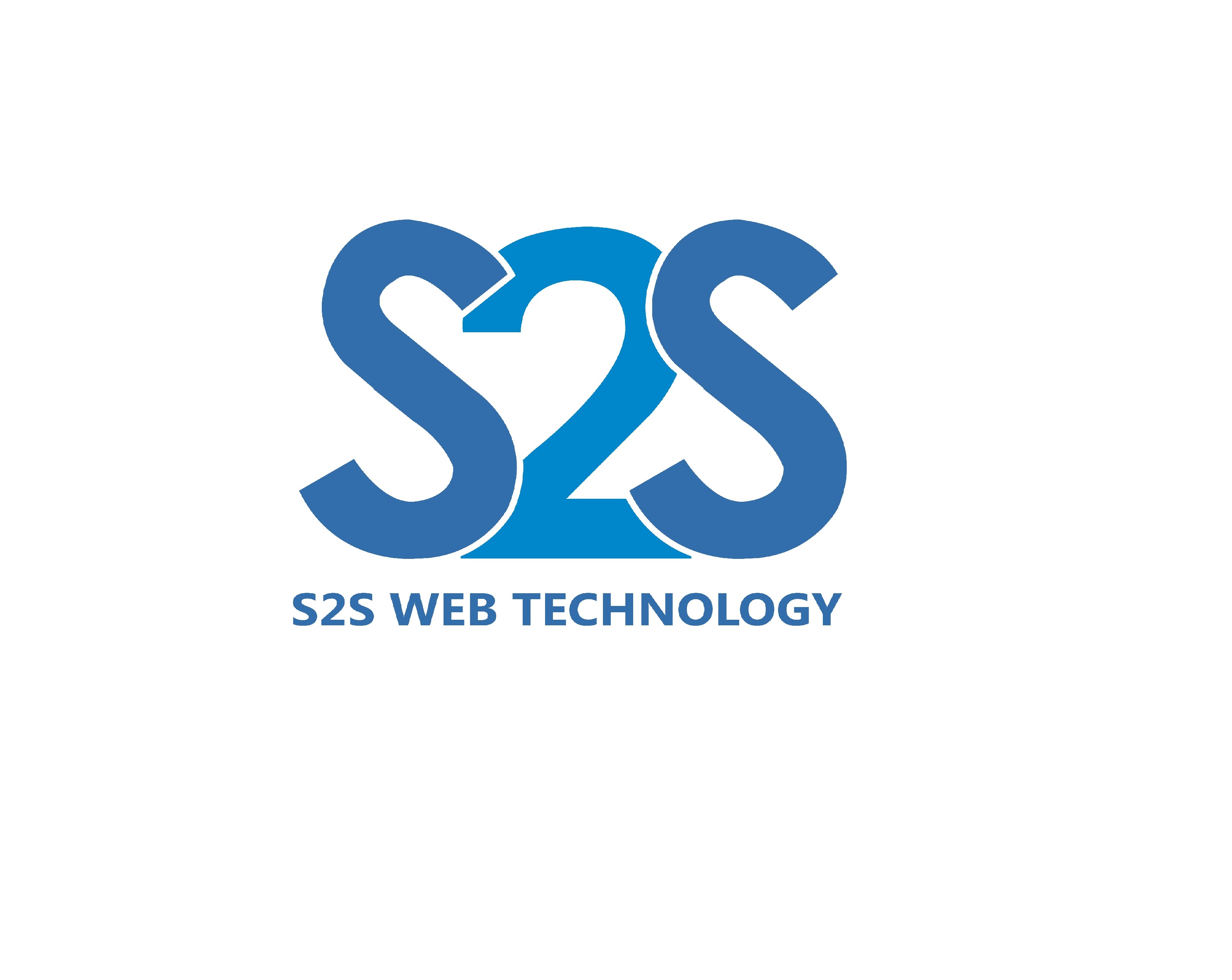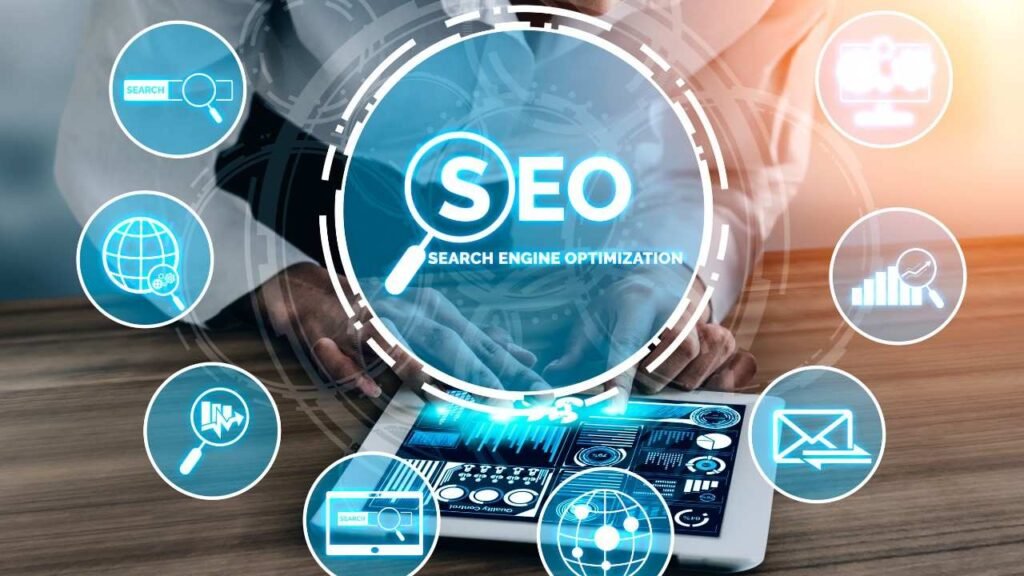What is SEO?
Search Engine Optimization (SEO) is the practice of orienting our website to rank higher on a search engine results page (SERP) so that you receive more traffic. there are 4 main types of SEO strategies: On-page, Off-page, Technical, and Local SEO. It is considered a digital marketing practice and can be applied to any website.It helps improve a site’s visibility on search engines like Google and Microsoft Bing.
We think this will best suite for the query what is SEO?
Next…
How does it work
Search Engine Optimization (SEO) is the practice of improving a website’s visibility in search engine results (like Google) to attract more organic (non-paid) traffic. Here’s a breakdown of how ‘SEO’ works:
Search Engines Basics
Search engines (Google, Bing, etc.) use crawlers (bots) to scan the web and index pages. When someone searches for something, the search engine returns the most relevant and authoritative pages based on its algorithm.
Key Components of SEO
On-Page SEO
Optimizing individual pages to help them rank better:
-
Keywords: Use relevant terms people search for.
-
Title Tags & Meta Descriptions: Tell search engines and users what your page is about.
-
Headings (H1, H2, etc.): Organize content and make it scannable.
-
Content Quality: In-depth, original, and helpful content is crucial.
-
Image Optimization: Use alt text and compress images.
Off-Page SEO
Boosting your site’s authority through external methods:
-
Backlinks: Links from other websites signal trust and authority.
-
Social Signals: Shares and mentions on social media can indirectly influence rankings.
-
Brand Mentions: Even without links, your brand being talked about helps.
Technical SEO
Improving how search engines crawl and index your site:
-
Site Speed: Fast-loading pages are favored.
-
Mobile-Friendliness: Must work well on mobile devices.
-
URL Structure: Clean, descriptive URLs.
-
Sitemaps & Robots.txt: Help search engines understand your site.
-
HTTPS: Secure sites get a ranking boost.
Local SEO (for businesses with a physical location)
Optimizing for location-specific searches:
-
Google Business Profile: A must-have for visibility in local results.
-
NAP Consistency: Name, Address, Phone number consistent across the web.
-
Local Citations & Reviews: Help validate and promote your business.
Is SEO easy to learn
On-Page SEO:
Off-Page SEO:
How Search Engines Work
Learning SEO (Search Engine Optimization) involves a mix of understanding how search engines work, mastering technical and content strategies, and staying current with changes in the industry. Here’s a clear step-by-step path to learning SEO, whether you’re a beginner or want to go deeper:
Understand the Basics of SEO
Start by learning the three main types of SEO:
- On-page SEO (content & HTML optimization)
-
Off-page SEO (backlinks & external signals)
-
Technical SEO (site structure, speed, mobile-friendliness)
How does SEO work
SEO (Search Engine Optimization) works by improving your website and its content so that search engines like Google can understand, index, and rank it more effectively—leading to higher visibility in search engine results pages (SERPs).
1. Search Engines Crawl the Web
Search engines like Google use bots (crawlers) to scan (or “crawl”) web pages across the internet. They follow links and read the content, HTML structure, and metadata.
- They collect data about each page and add it to a massive index (like a giant digital library).
2. Indexing
Once crawled, the pages are indexed, meaning they’re stored and organized in the search engine’s database.
-
If your page is not indexed, it won’t appear in search results.
-
Google indexes pages based on their content, keywords, structure, and relevance.
3. Ranking Based on Relevance & Authority
When someone types a query (like “best running shoes”), the search engine looks through its index and uses ranking algorithms to display the most relevant pages.
Why Adapting to Technology Matters in SEO
Search engines like Google are constantly evolving, and so is user behavior. Staying updated with technology allows you to:
-
Optimize for new devices (like mobile or voice assistants)
-
Respond to algorithm updates (e.g., Core Web Vitals, AI-powered search)
-
Use modern SEO tools for better insights and performance
Key Areas Where Technology Impacts SEO
1. Search Engine Algorithms (AI & Machine Learning)
-
Google uses AI (e.g., RankBrain, BERT, Gemini) to better understand search intent.
-
Adaptation tip: Focus on user intent, natural language, and content depth—not just keywords.
2. Mobile-First Indexing
-
Google prioritizes the mobile version of your site for indexing and ranking.
-
Adaptation tip: Ensure your site is fully responsive and fast on mobile.
3. Voice Search & Conversational AI
-
More people use voice assistants (e.g., Siri, Alexa, Google Assistant) for search.
-
Adaptation tip: Optimize for long-tail, question-based queries and use structured data (schema markup).
4. Core Web Vitals & Page Experience
-
Google ranks pages partly based on performance metrics like loading speed, interactivity, and visual stability.
-
Adaptation tip: Use tools like PageSpeed Insights and Lighthouse to audit and improve your site’s performance.
5. AI-Powered SEO Tools
-
Tools like Surfer SEO, Clearscope, Ahrefs, Semrush, and ChatGPT are powered by AI to help with keyword research, content optimization, and audits.
-
Adaptation tip: Use these tools to speed up analysis, content writing, and decision-making.
6. Search Generative Experience(SGE)/AI Overviews
-
Google is experimenting with AI-generated answers in search results.
-
Adaptation tip: Structure your content clearly, answer questions concisely, and build authority to be featured in these results.
7. Automation in SEO
-
Automate repetitive tasks like reporting, monitoring rankings, and technical audits.
-
Adaptation tip: Use tools like Zapier, Screaming Frog, and Google Data Studio for automation.
How does SEO evolves
SEO constantly evolves in a number of ways, perhaps most importantly because it is a service and a practice employed at the coalface of how humans interact with information on the web.What is most important about this, is to consider the web and search engines in the wider context of society.
SEO tools :
You can’t carry out effective search engine optimization without data, and to get data, you need tools. Luckily, most of them are free. The best SEO tools for an optimal SEO strategy are:
Google Analytics: This is the gold standard for website traffic analytics, and it’s free. Use it for any and all SEO metrics to measure your performance, such as traffic, time on page, engagement with page, number of pages per session, and (lots) more.
Google Search Console: GSC is essential for content-focused and technical SEO. Although some Search Console data appears in Google Analytics, there is a lot you get in the platform on its own. Use it for Core Web Vitals, granular query analyses, indexing, and more.
Keyword research tools: As mentioned above, you’ll need these so you can find keywords that are realistic for you to target in terms of search volume and competition. Use my roundup of the best paid and free keyword research tools to find the right one for you.
SEO software: If you’re going to look at deeper SEO metrics like backlinks, competitive information, and more advanced keyword data, you’ll need a paid SEO tool like Ahrefs, Moz Pro, Screaming Frog, SEMrush, etc. Some of these offer free trial versions or free services for the first 500 (or something) links.
Website graders: Whereas the aforementioned tools are often complex and require you to know how to make sense of the data, website graders can simplify SEO for you and offer more guidance.
What is a meta description
A meta description is a short summary of a webpage’s content that shows up on search engine results pages (SERPs). While meta descriptions aren’t a direct ranking factor for SEO, they can impact click-through rates (CTRs) and indirectly influence your rankings. It appears under the page title in search engine results, and its main purpose is to give users a quick preview of what to expect on that page. It’s like a mini-advertisement for your content, and a well-written meta description can encourage users to click on your page.
Helps You Understand User Behavior
SEO (Search Engine Optimization) is important because it directly influences how visible your website is in search engine results (like Google), which affects your ability to attract organic (unpaid) traffic. Here’s why SEO matters:
-
Gain actionable insights into user behavior to improve website performance, boost engagement, and increase conversions.
-
Understand how visitors interact with your website to optimize UX and drive results using behavior analytics.
-
Track and analyze user behavior to enhance your site’s design, navigation, and content strategy.
-
Use behavior data to make smarter decisions, improve retention, and grow your online presence.
-
Discover what users want and how they navigate your site with powerful behavioral insights.
1. Increases Visibility and Traffic
-
When your site ranks high for relevant keywords, more users see and click on your content.
-
Organic search is a primary source of website traffic, often bringing in more visitors than social media or ads.
2. Builds Credibility and Trust
-
Users trend to trust websites that appear near the top of search results.
-
SEO involves optimizing site speed, mobile-friendliness, and quality content—all of which contribute to a better user experience and trustworthiness.
3. Cost-Effective Marketing
-
Unlike paid ads, organic traffic doesn’t cost per click.
-
While SEO takes time and effort, it provides long-term returns without ongoing ad spend.
4. Supports Other Marketing Efforts
-
SEO helps with content marketing by making sure your content gets found.
-
Strong SEO enhances the performance of PPC (pay-per-click) campaigns by improving landing page quality and relevance.
5. Gives You Competitive Advantage
-
If your competitors are doing SEO and you’re not, you’re losing out.
-
A well-optimized site can outperform competitors even with smaller marketing budgets.
6. Targets Quality Traffic
-
SEO targets users who are actively searching for what you offer, meaning traffic is more likely to convert.
-
This makes SEO one of the highest-converting marketing channels.

